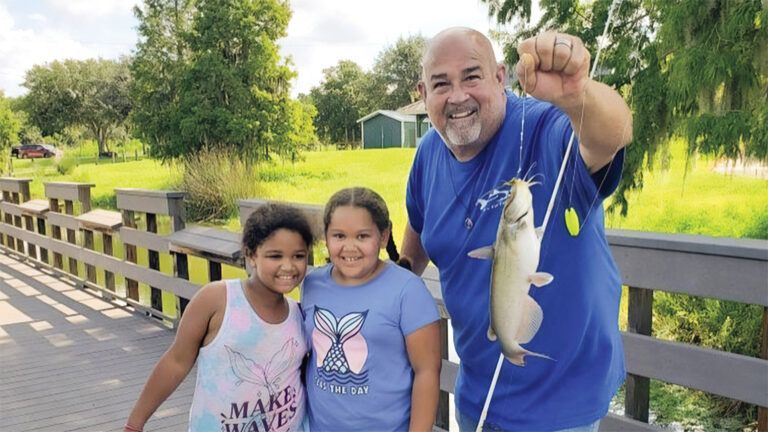What’s the secret to raising children of faith? Few questions inspire as much hope—or fear—in the hearts of religious parents.
We live at a time when many young people are abandoning faith. Close to half of millennials (born between 1981 and 1996) profess no religion at all, according to the Pew Research Center. Only a fifth go to church each week. Younger Americans are even less religious. How can parents of faith prevail?
“You have more influence than you realize,” says Christian Smith, Director of the Center for the Study of Religion and Society at the University of Notre Dame. Smith recently co-wrote Handing Down the Faith, a comprehensive survey of religious parenting in America. The book documents what parents believe, how they pass on faith and what works—including the important role played by grandparents.
“There’s a narrative that once kids are teens, parents have less influence,” Smith says. “Research shows that’s not true…Parents should be empowered by sociology to know they still have influence and not to give up.”
So, what’s the secret? Here are Smith’s top recommendations:
1. Model a faith-filled life.
“Kids are watching and listening even if they don’t seem to be,” Smith says. Parents should strive to “be the best version of what they hope their kids will become.”
That means being actively involved in a faith institution, maintaining a regular habit of prayer or devotion, being open and honest about faith—including doubts and struggles—and striving to live out religious values. Smith is a person of faith himself—Catholic—and he says he gets it that parents are busy and can find it hard to make time for religion on top of everything else. That’s okay, he says, because what matters is showing your kids that you’re trying.
“Kids know if parents are putting on an act. You have to be yourself.”
Research shows that active involvement in a religious community boosts believers’ physical, mental and emotional health and contributes to stronger marriages and families. What’s good for kids is good for everyone else. “The pro-social, pro-health, pro-everything effects of religion” are well established, Smith says.
2. Adopt an “authoritative” parenting style.
Sociologists distinguish four styles of parenting: Authoritative (high expectations, firm rules, emotionally warm), authoritarian (strict, emotionally cold), permissive (emotionally warm but few rules) and uninvolved (parents spend little time with kids and know little about their lives).
Smith said research shows that authoritative parents are most likely to pass on faith to their children. “In every way of life those kids do better,” Smith says, adding that authoritative parenting “creates a strong relationship” and can boost overall mental and emotional health and even performance at school.
“Parents’ general relationships with kids matter,” Smith says. Sending kids off to youth group or forcing them to read the Bible outside the context of a warm and loving relationship risks fostering a superficial faith or alienating kids from religion altogether.
“The general rule is, we will get what we are,” says Smith.
3. Talk about faith frequently.
Smith says one fact stood out in his research: Kids whose parents talk to them about faith often are far more likely to grow up religious. “It signals to children that faith matters not just on Sundays,” he says. “It helps children learn a language of faith.”
If kids only hear about faith for a few hours each week at church, that’s like occasionally dropping them off in a room full of foreign-language speakers and expecting them to become fluent. The same goes for relying solely on a youth group or Bible reading. “You don’t just pick up language from a textbook,” Smith says.
Fortunately, research shows that parents don’t have to know everything to communicate effectively. In fact, admitting your own doubts can strengthen kids’ faith because it shows you take religion seriously enough to ask questions.
“Most kids will have their own doubts and questions along the way, and it helps them to know their parents do too,” Smith says. “If they think their parents are more certain than they are, they’ll shut down.”
What if a child directly challenges a parent’s beliefs? Don’t panic, says Smith. Such challenges are a normal part of development. “The best thing a parent can say is, ‘I’m glad we’re talking about this. Here’s what I believe and I hope you take that seriously, but you’re your own person and you have to come to your own convictions and we’ll still love you.’”
4. Surround yourself with other people of faith.
Here’s where grandparents come in. The more people of faith kids know and respect, Smith says, the more likely they are to see faith as a normal part of life.
Grandparents play an important “reinforcing role.” They show kids that it’s not just parents who value faith. In Black and Latino families, grandparents are even more important—respected elders who set the tone for the family.
Grandparents often have a uniquely close relationship with kids. Kids open up to them and may regard them as an ideal to live up to. “What would grandma say about this?” has persuaded more than one kid to reconsider a bad decision, Smith says.
Aunts, uncles, parents’ friends and people in religious congregations all play reinforcing roles too, Smith says. “Don’t shelter kids but make sure they have enough ties that they can see other adults who are not crazy who are like their parents.”
“Stick with it,” says Smith. Raising children of faith is not easy in a consumerist culture but it’s not impossible either. “You’re the model. You’re the key player. You have an opportunity to have a big influence.”





